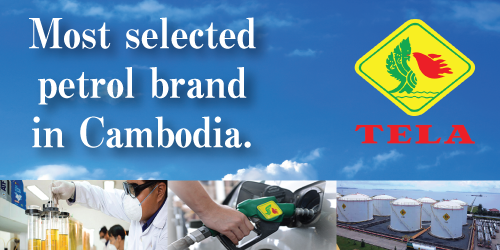- Golden Coast Updates: Significant developments in Ghana news today signal shifts in economic policy and social initiatives.
- Economic Policy Shifts and Their Impact
- Social Initiatives and Welfare Programs
- Healthcare Access in Rural Communities
- Education and Skills Development
- Political Landscape & Governance Reforms
- Infrastructure Development and Investment
Golden Coast Updates: Significant developments in Ghana news today signal shifts in economic policy and social initiatives.
Ghana is currently experiencing a period of significant transition, with developments unfolding rapidly across various sectors. ghana news today focuses on the evolving economic policies, social initiatives, and political landscapes shaping the nation’s future. Recent announcements regarding infrastructure projects, coupled with shifts in monetary policy, are attracting substantial attention from both domestic and international observers. Understanding these changes is crucial for anyone with an interest in the economic stability and growth of West Africa.
The Ghanaian government has been actively pursuing strategies to diversify the economy, reduce reliance on traditional commodity exports, and foster a more sustainable and inclusive growth model. These efforts include promoting local entrepreneurship, attracting foreign investment, and investing in education and healthcare. The ripple effect of these initiatives powers ongoing analysis and reporting across numerous channels dedicated to providing timely and insightful perspectives on the unfolding situation.
Economic Policy Shifts and Their Impact
A noticeable change in economic policy has centered around a revised approach to debt management and fiscal responsibility. The government has outlined plans to restructure existing debt obligations and implement stricter financial controls. This is designed to restore investor confidence and create a more stable macroeconomic environment. Experts suggest these measures, while necessary, present short-term challenges related to reduced government spending and potential tax increases. They also aim to mitigate the risk of future economic instability, building a more resilient financial system.
Alongside debt restructuring, Ghana is actively exploring opportunities for economic diversification. The focus is on sectors such as agriculture, tourism, and technology, which offer significant growth potential. Investments in these areas are expected to create jobs, boost exports, and reduce dependence on traditional commodity markets. The implementation of these policies will require sustained commitment and a collaborative approach involving the government, private sector, and civil society organizations.
| Agriculture | 150 | 50,000 |
| Tourism | 80 | 30,000 |
| Technology | 200 | 75,000 |
Social Initiatives and Welfare Programs
The Ghanaian government is also heavily invested in a range of social initiatives focused on improving citizens’ lives. These programs address critical areas such as healthcare, education, and poverty reduction. Recent initiatives include expanding access to healthcare services in rural communities, providing scholarships for students from disadvantaged backgrounds, and implementing social safety nets to support vulnerable populations. These are all crucial steps towards enhancing well-being and diminishing socio-economic inequalities.
A key component of the government’s social agenda involves strengthening the education system. Investment in teacher training, infrastructure development, and curriculum reforms are expected to improve the quality of education at all levels. Additionally, significant resources are being allocated to technical and vocational training programs, equipping the workforce with the skills needed to meet the demands of a rapidly changing economy. This pushes the goal of a skilled and adaptive populace.
Healthcare Access in Rural Communities
Expanding healthcare access to underserved rural communities remains a paramount concern. The government, in collaboration with non-governmental organizations, is establishing new health facilities, deploying medical personnel, and implementing outreach programs to deliver essential healthcare services directly to those in need. These initiatives address several challenges, including limited infrastructure, shortages of healthcare professionals, and logistical difficulties. Recent data indicates a notable improvement in maternal and child health outcomes as a direct result of these interventions. Stronger emphasis is gaining momentum on preventative healthcare measures.
The quality of healthcare services is also being improved through investments in medical equipment, training for healthcare workers, and the implementation of electronic health records. These measures enhance the efficiency and effectiveness of the healthcare system, enabling providers to deliver better care to patients. Moreover, the government is promoting health education campaigns to raise awareness about disease prevention and healthy lifestyles, empowering individuals to take control of their well-being. These measures increasingly focus on community-based health worker programs.
Education and Skills Development
Recognizing the critical role of education in national development, the Ghanaian government is increasing investments in the sector. This includes allocating more resources to schools, providing scholarships and bursaries to students from disadvantaged backgrounds, and improving the quality of teaching and learning. Efforts are underway to upgrade school infrastructure, provide learning materials, and enhance teacher training programs. These critical elements must allow students access to quality education.
Alongside formal education, the government is also promoting technical and vocational education and training (TVET). This is designed to equip young people with the skills needed to succeed in the workforce. TVET institutions are being strengthened, curriculum updated and linkages with industry forged between educational establishments. Focus continues on bridging the skills gap, ensuring that young people are well-prepared for employment opportunities. Skills are expected to meet the changing requirements of the labor market due to the nation’s rapidly diversifying economy.
Political Landscape & Governance Reforms
The political landscape in Ghana remains dynamic, with ongoing debates about governance and accountability. The government is committed to promoting transparency, strengthening democratic institutions, and ensuring the rule of law. Recent legislative efforts have focused on reforming electoral processes, improving public financial management, and strengthening the judiciary. These measures aim to enhance good governance, reduce corruption, and foster a more accountable political system. Political discussions continue to highlight the importance of national unity and inclusive decision-making.
Civil society organizations play a vital role in Ghana’s democratic process. These organizations advocate for citizen rights, promote good governance, and monitor government performance. The government has expressed its commitment to fostering a constructive dialogue with civil society, recognizing their important role in shaping public policy. Continued collaboration between the government and civil society is seen as essential for ensuring the effective implementation of governance reforms.
- Strengthening electoral processes
- Improving public financial management
- Strengthening the judiciary
- Promoting freedom of expression
- Enhancing citizen participation in governance
Infrastructure Development and Investment
Improving infrastructure remains a key priority for the Ghanaian government. Large-scale projects are underway to upgrade transportation networks, expand electricity generation capacity, and improve access to water and sanitation. These investments are expected to stimulate economic growth, create jobs, and improve the quality of life for citizens. Specifically, road construction, railway rehabilitation, and port expansion projects are underway across the country, improving connectivity and facilitating trade.
Attracting foreign investment in infrastructure is also a priority. The government is actively engaging with international investors to secure funding for projects in strategic sectors. Public-private partnerships are being encouraged to leverage private sector expertise and capital. These partnerships are expected to accelerate infrastructure development and deliver sustainable economic benefits. These endeavors will promote long-term economic development.
- Road Construction
- Railway Rehabilitation
- Port Expansion Projects
- Energy Infrastructure Development
- Water and Sanitation Projects
| Accra-Kumasi Highway | 250 | 2026 |
| Tema Port Expansion | 350 | 2027 |
| Pwalugu Dam Project | 750 | 2028 |
The convergence of these economic, social, political, and infrastructural developments points toward a period of significant transformation for Ghana. Continued monitoring of ghana news today will be essential in tracking the progress of these initiatives and assessing their impact on the nation’s trajectory. The recent strides represent a concerted effort to forge a more prosperous and equitable future for the Ghanaian people.

 日本語
日本語







